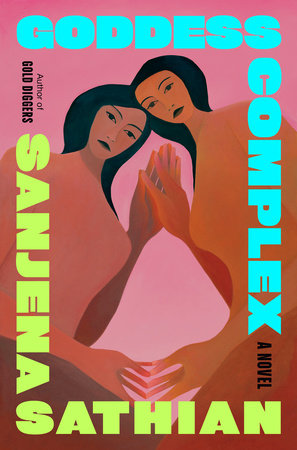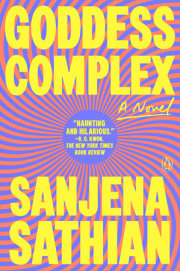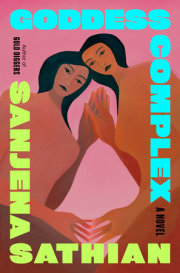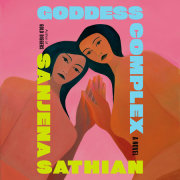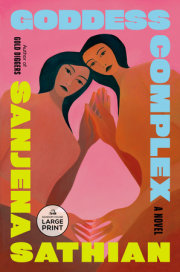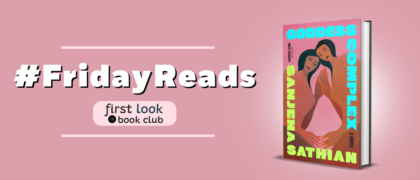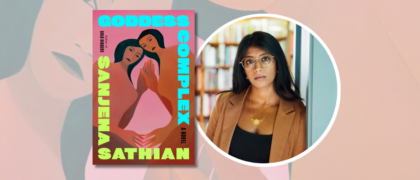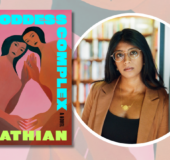1ExpectationsIt began innocuously enough, with a text message from an unknown number that arrived while I was soaping my armpits in the ladies' room of the New Haven train station.
So you and K are back in town
I presumed that the sender had seen me lugging a forlorn expression around campus recently, where I was, in fact,
back after a long spell away. Possibly we had even brushed past each other on the train platform moments earlier. I glanced over my shoulder, quickly, as if some figure might materialize from one of the Pepto Bismol-pink toilet stalls. Then I stood, very still, for perhaps half a minute. All was silent. I became suddenly aware of the foolishness of my posture, the way I was leaning toward the mirror, lit by the sickly fluorescence, my true eyes fixed on my reflected eyes, like a cat tensing up at its likeness in a windowpane. I shook off the chill that had run down my neck at the sight of the initial,
K.There had been nasty, disjointed flashes like this all year, as acquaintances whose names I could not remember, whose faces I failed to place, crossed streets or cafés to say hello and, inevitably, ask about Killian. He was, after all, still legally my husband. I usually just said, "Oh, he's out of town," because I could not bring myself to explain the limbo of our situation. I had ghosted him last summer, and we had not spoken in nearly a year. I was something between a wife and an ex-wife, between who I had been and who I would be next.
I pocketed my phone and returned to the task at hand: dabbing my smelly underarms with a damp paper towel. I had stopped shaving (out of laziness rather than self-empowerment) and the more forested my pits grew, the more they seemed to become their own ecological zones. On top of that, I had lost my deodorant, and I could not bathe, as I could not go home: it was commencement weekend on campus, and in order to escape the celebratory crowds of smug families and promising graduates who would emphasize, by contrast, my own pomp-less circumstances, I'd Airbnb'd my place to some undergrad's parents and fled to my friend Lia's, in Brooklyn. My stay had begun pleasantly, until, after I'd poured the four-dollar wine I'd brought as my keep, Lia coyly pushed her glass aside and announced that she was
expecting."Expecting what?" I asked, absently, thinking of a piece of mail, or another guest.
"
Expecting expecting."
Her beam matched the sheen of her stainless-steel appliances. Lia and her husband Gor had recently bought a two-bedroom condo in a new-construction high rise in Dumbo. All the appliances seemed straight out of plastic wrap. I felt like a mannequin in a showroom. In college, Lia had passed one barefoot, braless summer volunteering on a dairy farm, sleeping on alpaca rugs, extolling Diva Cups. More recently, she and Gor, both attorneys at white-shoe law firms, had been featured in a
New York magazine piece about millennials' home-buying "journeys." I was still unaccustomed to this new Lia, who had found serenity in her renunciation of renunciation.
My throat clogged, and instead of congratulating her on having become successfully inseminated, I said, "Who the fuck says
expecting instead of pregnant?"
Her doll-like features immediately contorted into an expression of utmost sympathy. I grasped that she thought I was jealous.
It was true that my life was increasingly becoming the warped inverse of hers. I'd left Killian the month she and Gor celebrated their two-year wedding anniversary; signed a lease on a dank studio weeks before they closed on the condo. And there was something else, too: unbeknownst to Lia, I had terminated a pregnancy last August. The pregnancy had transformed what had once been my ambivalence about childbearing into a certainty. I could only think: I do not want it in me; I cannot be split.
For weeks after the procedure, I cramped and bled. The doctor said the bleeding went on too long; my womb, she deadpanned, had "relaxed too much."
So, no, I did not envy Lia's forthcoming rascal.
If I coveted anything about her life, it was the glow of comprehensibility that surrounded her. Once, I, too, had made sense, but of late, I was becoming less defined. I seemed to have abdicated my birthright citizenship to the nation of marriage and mortgage and motherhood, and beyond its borders lay uncharted terrain. I did mourn
something after the procedure-not a specifically rendered unborn child, some slo-mo picture of a dark-haired creature soaring higher and higher on a bright red swing. (I had not contracted Killian's childhood Catholicism.) Rather, I grieved the loss of a version of me who was more fathomable to the world.
Had I told Lia about the abortion, she would no doubt have glanced, pro forma, at the pink i'm with her mug on her trinket shelf, assuring me (assuring
herself) that she bore no judgment. But I feared that everyone I knew had suddenly inherited a capacity for love that I lacked, and I was certain they believed that I was missing out on the Fundamental Mystery of Humankind. So, I kept my
choice to myself.
I tried again: "Wow!" I said. "Your baby will be so cute."
Lia bit her lip.
I asked whether she and Gor planned to hyphenate Wojciechowski-Grigoryan.
Her palm flattened against the gleaming black countertop like she was massacring a large bug. "I guess I never told you. I took his name."
She stood abruptly and went to dump her wine in the sink. With her back to me, she began to loop a lock of her blond hair around her index finger, turning the knuckle paper-white, cutting off circulation. She was nervous.
"No. Or, yes," I agreed. "You never told me."
"I knew what you would say." Her vast blue eyes narrowed warningly, puddles shrinking in the sun. "And before you say it, there are a lot of reasons people change their names." Lia enumerated them: being closer, forming a clear family unit. Anyway, what was feminist about being forced to choose between her shitty father's unpronounceable surname and her very nice husband's?
I pointed out that my name is Sanjana
Satyananda and Killian's is Killian
Bane, but I had not become Sanjana
Bane in order to assimilate into an easier identity. Plus, I added, she was blond. She asked what that had to do with anything, and I said it meant she didn't get to complain about her ethnic last name.
Things escalated from there, and in the end, discovering that my dearest, oldest friend had remade her legal identity without informing me led me to snark something half-baked about the ethics of reproducing in the face of climate change. Lia burst into tears, which, while not unheard of in our eighteen years of friendship, made me seem especially cruel now that she was crying for two. Gor soon appeared in the doorway and suggested I leave.
I am an anthropologist, so I know: spinsters make good demons. We infiltrate the bodies and minds of the happily married, sowing discord. We steal babies, kill babies, eat babies. You have to banish us. Out in the field, I knew a female healer who specialized in exorcisms for infertile women. Her instrument of choice was the broomstick, with which she beat barren wives. The wives themselves sought this treatment. Often, they came to the healer knowing exactly what, or who, was to blame for their empty wombs, and they'd tell the healer: my sister, my neighbor, my enemy, she died unfulfilled (which could only mean sonless) and cursed me with this brutal bequest. Then the healer would lift her broom and get to work delivering the blessing of progeny.
Having finished armpit dabbing, I exited the bathroom into the vestibule of the train station. Its high vaulted ceiling, a miniature of Grand Central, reminded me of the ersatz quality of life around this campus. Like the imitation Oxbridge architecture, the station was a snow globe synecdoche of a vaster, more authentic reality. Filmmakers sometimes shot scenes here to pass off as Manhattan at rush hour-students, a blur of navy and black suits, playing the bankers and consultants commuting from suburbia whom they would, in time, become.
I sat on a bench to text Max the Harm Reducer, the twenty-four-year-old altruist with JV soccer good looks I'd been seeing. Perhaps he could lend shelter after my expulsion from Lia's. Just as I'd sent Max my SOS, though, a second message arrived from my unknown correspondent. Below the oddly hollow declaration-So you and K are back in town-it read:
I hear some big things are happeningI typed:
whos thisMy thumb hovered over the
send button.
Then, Max's name flashed up and my phone began to buzz.
He apologized in his sweet, nasal voice: he was busy tonight. He sounded like he was in a restaurant. Glasses clinked and voices swelled behind him.
"Are you on a date?" I asked. I meant it to come out flirty, but it sounded accusatory, clingy. I had no right to those feelings, as I was the one who'd insisted on our being nonexclusive so fervently that I'd cast myself as nearly ethically nonmonogamous, even a little turned on by the prospect of belonging to a harem. In actuality I desire neither; I was merely trying to move more weightlessly through the world. "Why would you call me if you're on a date?"
"I, uh. Thought it was an emergency."
I tried what my ex-therapist, Dharma Matheson, LMFT, MSW, had once suggested would
root me to the present in times of agitation. I closed my eyes and did a Kegel.
I opened my eyes. A South Asian woman about my mother's age was scrutinizing me across the antechamber from behind the counter of a Dunkin' Donuts. I smiled. She did not smile back. When I encountered my own kind in the wild, it could go either way. Sometimes they mistook me for one of them. Nice Daughter, Sweet Sister. Other times I failed to pass, and they intuited the real me: a thirty-two-year-old soon-to-be divorcée currently on medical leave from her graduate studies, who had twice overdrawn her bank account in the past year to pay rent. When my mother was my age, she was in a successfully arranged marriage, with two children, an MD, and an expectation that the next generation would out-earn her. Dunkin' Auntie seemed to know all this, sorting me into the category of Bad Brown Girl, like she
knew I was a married woman currently begging a man to take me in, and that I would have delivered an enthusiastic extramarital blow job in gratitude.
I assured Max that it was not an emergency.
I went outside, Auntie-ji's eyes boring into my back, and waited in the balmy May air for the campus shuttle to pull around. I weighed my options. In better times, I'd have crashed with someone from the anthropology department, but all my friends had either graduated without me-i.e., on time-or defected from the academy for noncontingent jobs with employer-backed health care. My campus ID wasn't working, due to the medical leave, so I couldn't slip into a library to pass out on a couch. I had one choice left. It was not ideal.
I settled into the largely empty bus and glanced back at the blue bubbles on my phone screen. The area code was 408-Northern California. That could be anyone in my world of coastal elites. My whos this lingered, unsent.
I glowered at that second note-I hear some big things are happening-and the stupid throbbing pink heart emoji. Pity, that's what that heart signified. My texter knew my marriage had failed. They did not want to offer me comfort; they wanted to gawk at my fuck-ups.
It's okay to keep others out for a while, Dharma had said. You're waiting.
(For what?)
To encounter your next
incarnation, she'd said, as though it were obvious. You just haven't met her yet.
Copyright © 2025 by Sanjena Sathian. All rights reserved. No part of this excerpt may be reproduced or reprinted without permission in writing from the publisher.

